WELLBEING | How To Have A Tech-Free Family Camping Break
There was a time when the mere thought of going tech-free left me feeling panicky. I felt my life was far too interesting and fun to simply keep it all to myself.
Looking back of course, part of me was seeking validation and I also had a fear of missing out which lead to me being constantly connected and compelled me to share much of my life on social media, hooked on the Pavlovian response of gratification that came with every new like and comment.

After spending the best part of a year reading extensively on the subject of mindfulness, neuroscience and brain plasticity in particular, I learned how our over-reliance on the internet is changing the way our brains work and turning us into essentially, unhappy idiots.
I identified with the fact that social media has its place and did offer benefits, but it certainly wasn’t making me happier, in fact it was making me unhappy and much, much less productive. Having a phone constantly in my hand did not fit with my desire for greater peace or to live life more mindfully.

My burgeoning suspicion that always being connected and over-sharing was bad for me, was now backed up by myriad scientific research. I decided to break my over-reliance on social media; to delete the Facebook app, turn off all notifications and to pick up my phone less often.
I realised that I didn’t really care what people I’d met a handful of times or used to hang out with 30 years ago were having for breakfast, their political views or what their latest rant was and I certainly didn’t care about gossip, clickbait or the latest attempt to data-mine by way of a thinly disguised quiz or must-have new app or filter.
Sharing my own life experiences on social media largely didn’t enhance them, they took me out of them. I was more distracted and much less engaged in the here and now. My constant connection to tech via social media was harming my wellbeing.
Sharing our lives on social media is so ingrained, it’s become an automatic response. If we’re glued to our mobile phones, we’re influencing our children’s behaviour and it stands to reason that they will seek the same level of digital distraction.
It wasn’t easy, but I’ve now learned to spend a few days at a time away from the internet and several weeks at a time with no personal social media use.

I train businesses in how to effectively leverage social media, I run countless social media advertising campaigns for my clients and of course, I’m a blogger, so erasing social media from my life entirely is simply not realistic or practical but whilst I have to use it professionally, I can make a concious choice when it comes to personal use.
I do of course recognise that there are some (limited) benefits to social media. For example, posting on a local Facebook group lead to me finding my lost cat. When I was rushed into hospital it was a quick and easy way to let friends and family know without having to contact everyone individually and the messages I received felt like warm hugs.
But the benefits I’ve felt since cutting down my use of social media have far outweighed the benefits of using it more.
So if you fancy trying out a digital detox next time you go camping, here are some simple ways that you and your family can spend a few quality days together, tech-free.
Tips for a family camping digital detox
1. Turn off mobile data and WiFi
Of course, you need to take your phone, for navigation, taking photos and for safety, purposes having a phone is a must, but you don’t need it to be constantly connected to the internet.
So turn off mobile data and WiFi. It will stop you from stressing about the lack of mobile signal or shonky WiFi. Children learn by example and if as parents we are constantly peering at a screen, then it’s only natural that they will want to do the same.

Turning off mobile data means that you won’t be able to update Instagram or provide an endless commentary of check-ins on Facebook. So what? The world will still turn, your friends won’t suddenly forget who you are. You and your family are the ones having the experience and you’ll get more out of it if you are fully present and immersed.
You can share all you like once you get home, just not right now. So turn flight mode on, turn the handset off, whatever it takes to break the habit of making constant updates and checking notifications.
2. Don’t pack that tablet or laptop
You are going away for a reason, presumably, for a short break or holiday in order to recharge yourself and/or to spend some quality family time, so let work and digital distractions wait. Nothing is more refreshing than disconnecting from your everyday life and reconnecting with yourself, those you love and the natural world.
Whilst you’re away, with a little bit of planning, your main source of entertainment can be easily provided by the great outdoors. Don’t even think about taking the laptop. Turn off the tablet and leave that at home too. And yes, that applies to the children’s tablets too!

Kids have been conditioned to rely on instant entertainment in digital form. Many have a tablet or phone shoved in front of their faces as a pacifier, a boredom buster or a mood stabiliser. Then we complain they lack imagination and don’t know how to entertain themselves!
We are condemning them (children) to an imagination-free life in an always-connected culture that exacerbates stress and unhappiness.
Quite aside from just shrugging and accepting this over-reliance on digital devices, we need to understand that by doing this, we are changing the way our children’s brains work. In doing so, we are condemning them to an imagination-free life in an always-connected culture that exacerbates stress and unhappiness.

There have been heaps of reports that tell us how little contact your average child has with nature. We know that playing outside in fresh air is good for their bodies and their minds.
We know that kids report loving outdoors play, and we also know that idle-time is valuable, as it gives them (and us) space and time to think, to process and to be creative; all of which are huge positives that a child doesn’t get from having a tablet plonked under their nose the second they appear even vaguely fidgety or bored.
In bad weather or in the evening before bedtime play a family game, get them to read a book, do some relaxing colouring-in or a jigsaw instead.
3. Plan nature-based activities in advance
When boredom sets in, it can be all too easy to turn to tech to fill that gap. Try instead to nurture an interest in nature. It isn’t always easy, but there are loads of ways you can help to encourage your children to be more interested in the outdoors.

Here are some ideas to get you started, and every single one of them will prove more rewarding and more memorable than gazing at a screen.
- Devise a scavenger hunt to make walks more interesting (check out 10 reasons why children should hunt bugs)
- Go rock-pooling at the beach
- Learn as a family to identify trees, flowers, birds and fungi
- Get arty and draw a landscape or write a poem about it
- Take your yarn or needlework with you and do some crochet, knitting or embroidery
- Take books and boardgames
- Hunt out interesting shots to capture on your camera
- Get walking, bike riding or swimming
- Fly a kite!
- Get into geocaching
- Learn about the constellations and do some stargazing
- Go foraging and see what wild edible free food you can find
- Collect and stack stones and make your own mini cairns or paint them
- Get your children to count how many times they spot an animal or plant
- Try some bushcraft and scavenge materials to make a shelter
4. Slow down and don’t be scared of nothingness
Don’t feel that you have to over-plan your family break. It’s fine to have a vague idea of things you’d particularly like to do, but you should always plan for down-time too.
When was the last time that you laid out a picnic blanket and simply lay on your back with the children picking out shapes in the clouds? Or the last time you pointed out Orions belt as you gazed up at the night sky?

Sitting around doing nothing is OK. It’s not something to be scared of. Even now I have to admit that I still feel the pathological need to be occupied and productive at all times and I often struggle, but I’m working at it and improving.
True boredom is a rare thing, and as long as they have air in their lungs and sun on their backs, there is a fascinating world beyond the screen, far from the internet connection and it’s full of all the wonders and beauty of nature.
Next time your child moans that they are bored or there is nothing to do, don’t feel the need to rush in and remedy that fleeting moment with technology.
Teach your children to embrace those times, true boredom is a rare thing, and as long as they have air in their lungs and sun on their backs, there is a fascinating world beyond the screen, far from the internet connection, and it’s full of all the wonders and beauty of nature.
When your family shifts into that mindset, it’s impossible to be bored and constant access to technology doesn’t feel quite so necessary.

References & Further Reading
- Ecotherapy aims to tap into nature to improve your wellbeing
- Alone Together, Sherry Turkle 2013
- The Shallows, Nicholas Carr 2011
- Mind Change, Susan Greenfield 2015
- The End of Absence, Michael Harris 2014
- New research: correlations between children’s connection to nature and education, wellbeing and action to save wildlife
- Study links camping to healthy, happy children
- Screen use is bad for brain development, scientist claims
- Wellbeing benefits from natural environments rich in wildlife
Over to you
I’d love to know how you deal with the demands of children who seek constant connection. Do you put your foot down and insist on tech-free times, or perhaps you feel that giving your child a tablet is the only thing that gives you any peace?
I’d also love to hear how you entertain the children and whether they’ve been creative and used their imagination to come up with games and things to do themselves?
Where to next?
- How I Plan My Solo Travels – 5 Microadventure Planning Considerations
- The Joy Of Staycations – What Makes Glamping So Great?
- Our Acorn Adventure Camping Holiday in the Ardèche, France
- WELLBEING | Witches Whispers From Routin Brig Waterfall, Scotland - April 25, 2024
- TRAVEL | The Little Coffee Bag Co. Delicious Coffee On The Go – Review - April 16, 2024
- NEWS | Easy Glamping With Easy Camp New Moonlight Spire Tipi Tent - April 15, 2024









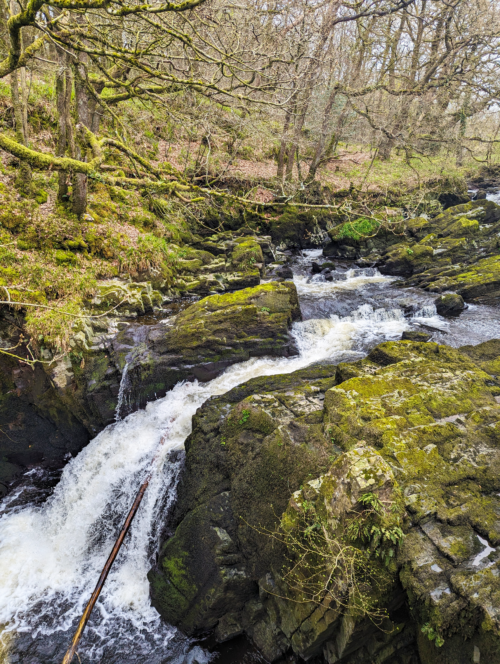




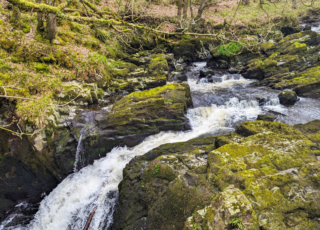

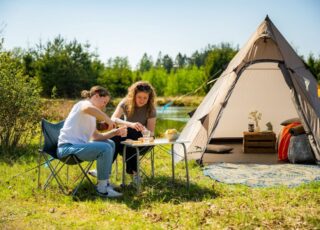



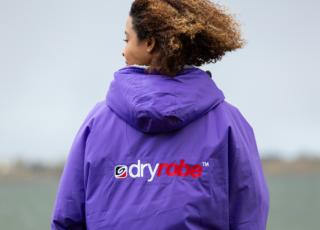
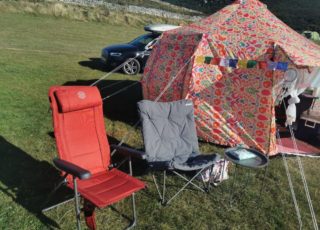
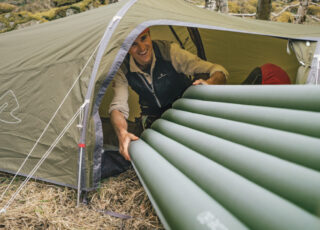
![CAMPING | Here’s How To Stay Warm In Your Tent – Warm Camping Tips [Updated 2024]](https://www.campingwithstyle.co.uk/wp-content/uploads/2024/02/shell0816_photorealistic_realistic_photo_of_the_inside_of_a_c_dd26c3c4-c779-4081-85b0-72e66a81b03b_1-320x230.png)
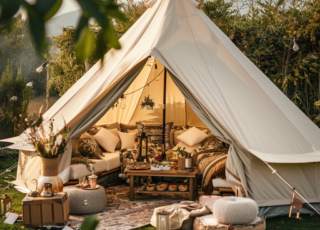
![GEAR | The Best Warm Sleeping Bags For Spring Camping Trips [Updated March 2024]](https://www.campingwithstyle.co.uk/wp-content/uploads/2024/02/10-best-warm-sleeping-bags-2024-320x230.png)



